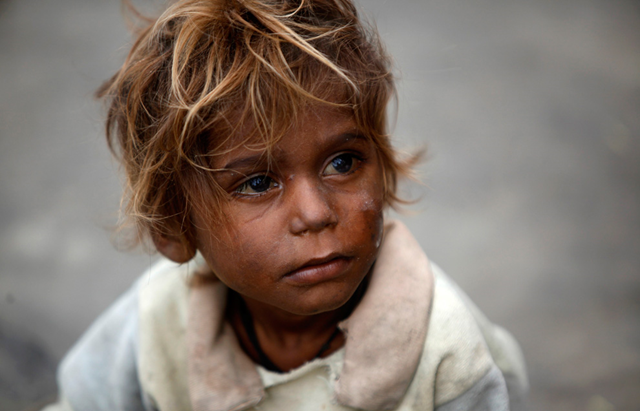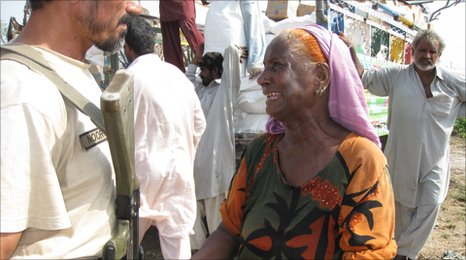Pakistan aid camps overwhelmed, flood survivors turned away – Refugees face ‘serious’ threat of epidemic disease
By Jill McGivering, BBC
24 August 2010 Sukkur is overwhelmed. Along the river banks and canals, on patches of dry ground and alongside the roads, homeless families are sitting or lying in the open air, their possessions piled at their side. They fled their homes with whatever they could carry as rising floodwater inundated their towns and villages. Most, unless they find shade under a tree, have no shelter from the scorching sun. … A screening process had already taken place within the camp to decide which families were eligible to receive it. Many people here are desperate and tensions are running high. Recently there have been incidents of crowds mobbing aid trucks and people being hurt in the crush and confusion. So this time the chosen few were regimented, sitting on the ground in neat lines in the glare of the sun, men and women segregated, as armed police officers and rangers stood guard around them. … Beyond the guards, watching jealously, other homeless people had gathered. An elderly lady tried to press forward and was herded back by guards wielding sticks. She started to sob and wail, her hands clawing at her face. I went across to talk to her. “For god’s sake, help us,” she said. “We don’t have breakfast in the morning or food at night. I don’t know why they won’t issue me with papers so I can get food.”
Nearby two frail elderly women, their clothes filthy, were clinging to each other. They were walking with the help of sticks and they were both blind. They too had been turned away by security and were now in tears. “We lost everything in the flood,” they told me. “We don’t have any food. Please help us to get aid.” They too had fled from their homes without any documentation. But it seemed that, because they didn’t have identity cards, they weren’t eligible to register at the camp and gain inclusion among the aid recipients. …
Pakistan flood survivors refused aid at relief camps 
BBC
24 August 2010 Pakistan’s prime minister says the government is “seriously concerned” about the potential spread of epidemic diseases in the flood-hit country. Yousuf Raza Gilani was speaking during high-level talks aimed at preventing a mass health crisis. Doctors in many areas are reportedly struggling to cope with the spread of diseases such as diarrhoea and cholera. The UN says more than 17 million people have been affected by the floods, with about 1.2 million homes destroyed. There are fears of further flooding as the Indus river at Hyderabad, already at a 50-year high, is expected to rise even more. … Doctors in some flood-hit regions are overwhelmed by health problems including skin rashes, dehydration and diarrhoea, says our correspondent. The flooding has already killed nearly 1,600 people, but millions are considered to be at risk from water-borne diseases. UN officials have described the humanitarian situation in Pakistan as critical. … “The floods are outrunning our relief efforts. We move faster and faster, but the finish line keeps moving further ahead,” UN spokesman Maurizio Giuliano told AP. …

